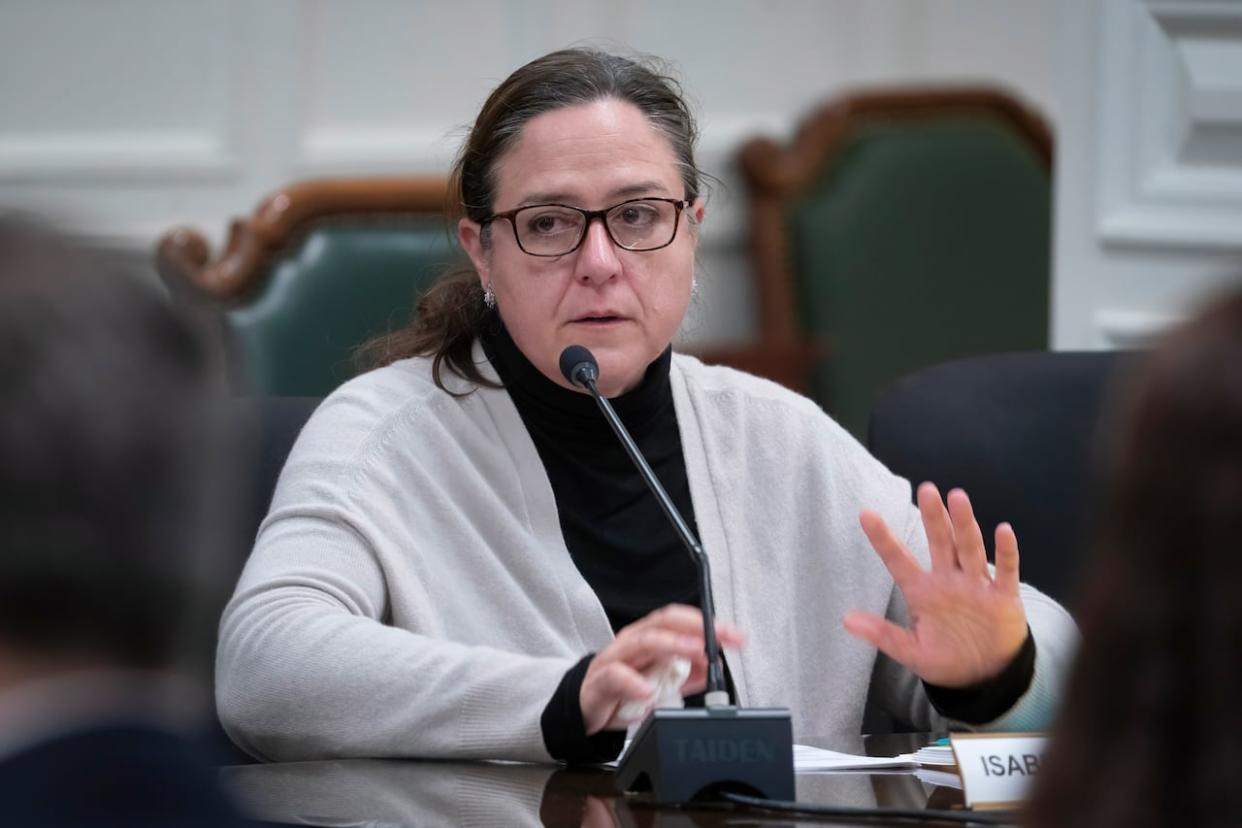OCPM president Isabelle Beaulieu ousted over spending allegations

The president of Montreal's public consultation agency has been fired after losing a unanimous vote of confidence at city hall, and the agency's budget has been frozen.
Isabelle Beaulieu's dismissal comes days after the city's finance committee interrogated her about inappropriate spending at the Office de consultation publique de Montréal (OCPM) between 2014 and 2021.
Expenses included international travel, fine dining, furniture and electronics at the cost of taxpayers.
Dominique Ollivier, who was OCPM president during that period, resigned last Monday as chair of Montreal's executive committee after an investigation by the newspaper the Journal de Montréal revealed the office's controversial spending under her leadership.
The agency continued to spend thousands after Ollivier left her post. Beaulieu, who assumed the presidency in February of 2022, said she relied on her predecessors' ways of spending on restaurants and travel for guidance, though she made an effort to reduce expenses.
During the hearing Friday, Beaulieu admitted she had made mistakes, pointing to the absence of a code of ethics at the OCPM and saying that "everything was managed arbitrarily."
Montreal Mayor Valérie Plante called for the OCPM president's dismissal following testimony that she described as "extremely shocking." However, even if the agency's $3-million budget has been frozen, the OCPM itself is not being dismantled just yet.
"We must not throw the baby out with the bathwater," Plante said Sunday on the Radio-Canada show Tout le monde en parle.
The Official Opposition added an amendment, demanding the management of the OCPM be assigned to an external and independent organization instead of being entrusted to the city's director general.
The council voted to dismiss the president for "serious misconduct" that resulted in a "crisis of confidence," says the decision summary.
OCPM's value
Despite the OCPM leaders coming under fire, Montrealers shouldn't let the controversy detract from the body's role in a democratic society, the Conseil régional de l'environnement de Montréal (CRE-Montréal) says.
In an open letter published on Nov. 17, the group emphasized the value of the consultation body, founded in 2002.
"It is entirely valid to be offended by the practices of the OCPM leaders and to demand exemplary behaviour from them, in the interest of sound management of public finances," the letter reads. "On the other hand, questioning the relevance of the institution and the very function of public consultation is a step that we believe is unacceptable."
Hélène Panaïoti, executive director of Les Amis de la Montagne — a non-profit dedicated to preserving Mount-Royal — is one of more than a dozen people who signed the letter. She describes the OCPM is an "absolutely essential way" of getting Montrealers who have informed opinions to influence project development.
Yet, in September, the Plante administration ignored an OCPM report that recommended keeping Camilien-Houde Way open to traffic and announced it would be restricted to pedestrians and cyclists. The OCPM report was written after extensive public consulations and the city's move raised questions about the relevance of the agency.
Political columnist Emilie Nicholas said the OCPM should use this controversy as an opportunity to clarify its mission to the public — serving as a tool for citizens "to put things on the agenda that are not part of what the city administration would like to put forward."
"Not every city has something like that," Nicholas said. "It would actually put democracy backward in terms of local politics if the OCPM was to be harmed because of that wave of scrutiny."


